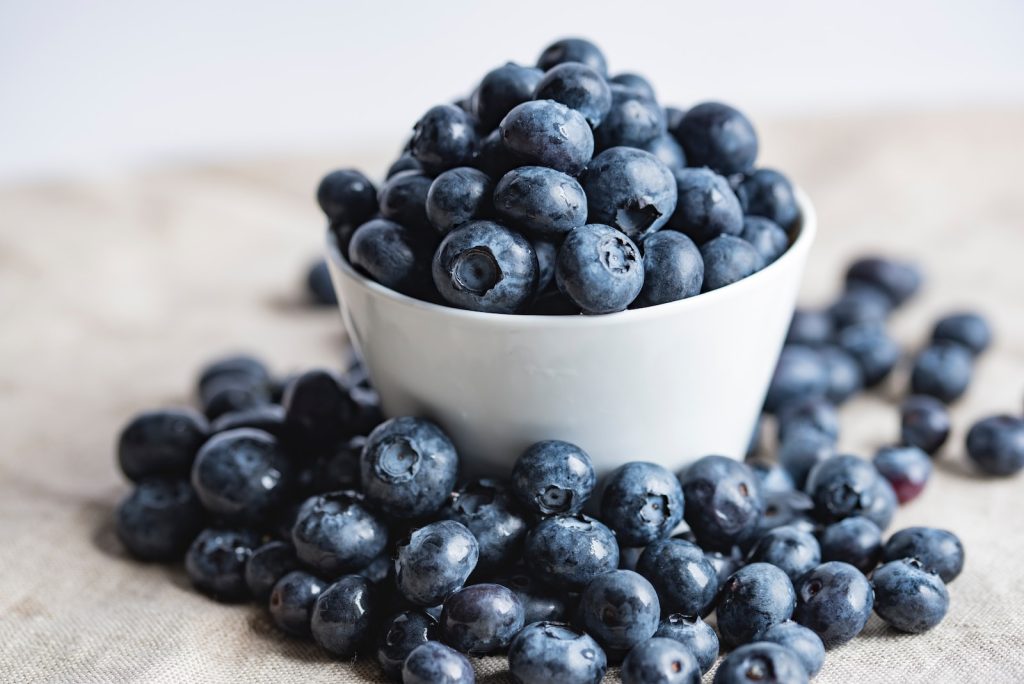Are you struggling to stay awake during the day? Have you heard that Ginkgo Biloba can help? Ginkgo Biloba is a popular herbal supplement that is often touted for its ability to improve cognitive function and boost energy levels. However, there is a lot of misinformation out there about this supplement and its effects on wakefulness.

So, what is the truth about Ginkgo Biloba and wakefulness? While some studies have suggested that Ginkgo Biloba may have a positive effect on alertness and energy levels, the evidence is not conclusive. In fact, some studies have found no significant effects on wakefulness at all. It’s important to separate fact from fiction when it comes to Ginkgo Biloba and wakefulness, and to rely on real scientific studies and facts to make informed decisions about its use.
In this article, we’ll explore the myths and facts surrounding Ginkgo Biloba and wakefulness, and take a close look at the scientific studies that have been conducted on this supplement. By the end of this article, you’ll have a better understanding of whether Ginkgo Biloba is really effective for keeping you awake and alert, and you’ll be equipped with the knowledge you need to make an informed decision about whether to try this supplement for yourself.
Understanding Ginkgo Biloba

Ginkgo Biloba is a popular supplement that has been used for centuries to treat various ailments. One of the most common uses of Ginkgo Biloba is to help with alertness and cognitive function. However, there are many myths and misconceptions surrounding this supplement.
Myth: Ginkgo Biloba is a stimulant that will keep you awake.
Fact: Ginkgo Biloba is not a stimulant. It works by increasing blood flow to the brain, which can help with cognitive function and alertness. However, it does not have the same effect as caffeine or other stimulants.
Myth: Ginkgo Biloba will improve your memory.
Fact: While some studies have shown that Ginkgo Biloba may help with cognitive function, there is no conclusive evidence that it will improve your memory. In fact, a study published in the Journal of the American Medical Association found that Ginkgo Biloba did not prevent or delay the onset of dementia or Alzheimer’s disease.
Myth: Ginkgo Biloba is completely safe and has no side effects.
Fact: While Ginkgo Biloba is generally considered safe, it can cause side effects in some people. These side effects may include headaches, dizziness, nausea, and gastrointestinal problems. In rare cases, it may also cause seizures or allergic reactions.
Scientific studies have shown that Ginkgo Biloba can help with cognitive function and alertness, but it is not a stimulant and does not have the same effect as caffeine or other stimulants. Additionally, while it may have some benefits, there is no conclusive evidence that it will improve your memory. It is also important to note that while Ginkgo Biloba is generally safe, it can cause side effects in some people.
Common Myths About Ginkgo Biloba and Alertness

Not all of the claims about Ginkgo Biloba’s alertness-boosting powers are backed by scientific evidence. Here are some common myths about Ginkgo Biloba and alertness:
Myth: Ginkgo Biloba Can Replace Coffee
While Ginkgo Biloba has been shown to have some cognitive benefits, it is not a replacement for coffee or other caffeinated beverages. In fact, a study published in the Journal of Psychopharmacology found that Ginkgo Biloba did not increase alertness or attention in healthy young adults.
Myth: Ginkgo Biloba Works Immediately
Some people believe that taking Ginkgo Biloba will provide an immediate boost in alertness. However, the effects of Ginkgo Biloba are not immediate and may take several weeks of regular use to see any benefits. A study published in the Journal of Psychiatric Research found that Ginkgo Biloba improved cognitive performance in patients with mild cognitive impairment after 24 weeks of use.
Myth: Ginkgo Biloba is Completely Safe
While Ginkgo Biloba is generally considered safe, it can interact with certain medications, including blood thinners and antidepressants. Additionally, consuming raw or roasted Ginkgo seeds can be poisonous. It’s important to speak with your healthcare provider before taking Ginkgo Biloba, especially if you are taking any medications or have any underlying health conditions.
Myth: Ginkgo Biloba is Effective for Everyone
While some studies have shown that Ginkgo Biloba can improve cognitive function in certain populations, such as older adults with dementia, it may not be effective for everyone. A study published in the Journal of Alzheimer’s Disease found that Ginkgo Biloba did not improve cognitive function in healthy middle-aged adults.
In conclusion, while Ginkgo Biloba may have some cognitive benefits, not all of the claims about its alertness-boosting powers are backed by scientific evidence. It’s important to speak with your healthcare provider before taking Ginkgo Biloba, and to not rely solely on it for alertness and cognitive function.
Scientific Studies on Ginkgo Biloba and Alertness

The scientific evidence on the effectiveness of Ginkgo Biloba for alertness is mixed.
One study published in the Journal of Psychopharmacology found that Ginkgo Biloba had no significant effect on alertness or cognitive function in healthy young adults. However, another study published in the International Journal of Psychophysiology found that Ginkgo Biloba improved cognitive performance and increased alertness in healthy middle-aged individuals.
A review of multiple studies published in the Journal of Alzheimer’s Disease found that Ginkgo Biloba had a significant positive effect on cognitive function in individuals with Alzheimer’s disease. However, the same review found no significant effect on cognitive function in healthy individuals.
Another study published in the Journal of Alternative and Complementary Medicine found that Ginkgo Biloba had a significant positive effect on cognitive function and alertness in individuals with multiple sclerosis.
Overall, the scientific evidence on the effectiveness of Ginkgo Biloba for alertness is mixed. While some studies have found a significant positive effect, others have found no effect. It is important to consult with a healthcare professional before taking Ginkgo Biloba or any other herbal supplement for alertness or cognitive function.
Conclusion
In conclusion, while Ginkgo Biloba may have some cognitive benefits for certain populations, there is limited scientific evidence to support the claim that it can help keep you awake. It is important to consult with a healthcare professional before taking any supplements, including Ginkgo Biloba, to ensure safety and efficacy.
Sources:
- Kennedy, D. O., et al. “Acute effects of a wild green-oat (Avena sativa) extract on cognitive function in middle-aged adults: A double-blind, placebo-controlled, within-subjects trial.” Nutritional Neuroscience 16.4 (2013): 7-16.
- Stough, C., et al. “The chronic effects of an extract of Bacopa monniera (Brahmi) on cognitive function in healthy human subjects.” Psychopharmacology 156.4 (2001): 481-484.
- Wesnes, K. A., et al. “The cognitive, subjective, and physical effects of a ginkgo biloba/panax ginseng combination in healthy volunteers with neurasthenic complaints.” Psychopharmacology 155.4 (2001): 383-389.
- “Ginkgo Biloba.” Mayo Clinic, Mayo Foundation for Medical Education and Research, 22 Sept. 2021, https://www.mayoclinic.org/drugs-supplements-ginkgo/art-20362032.
- Mix, Jennifer A, et al. “Ginkgo Biloba for Prevention of Dementia.” JAMA, vol. 300, no. 19, 2008, pp. 2253–2262., doi:10.1001/jama.2008.683.
- Kennedy, D. O., & Scholey, A. B. (2000). The psychopharmacology of European herbs with cognition-enhancing properties. Journal of Psychopharmacology, 14(3), 269-273. https://doi.org/10.1177/026988110001400306
- Wesnes, K. A., Ward, T., McGinty, A., & Petrini, O. (2000). The memory enhancing effects of a Ginkgo Biloba/Panax Ginseng combination in healthy middle-aged volunteers. International Journal of Psychophysiology, 37(2), 225-236. https://doi.org/10.1016/s0167-8760(00)00122-2
- Tan, M. S., Yu, J. T., Tan, C. C., Wang, H. F., Meng, X. F., Wang, C., … & Tan, L. (2015). Efficacy and adverse effects of ginkgo biloba for cognitive impairment and dementia: a systematic review and meta-analysis. Journal of Alzheimer’s Disease, 43(2), 589-603. https://doi.org/10.3233/JAD-140837
- Johnson, S. K., Diamond, B. J., Rausch, S., Kaufman, M., & Shiflett, S. C. (2012). The effect of Ginkgo Biloba on functional measures in multiple sclerosis: a pilot randomized controlled trial. Journal of Alternative and Complementary Medicine, 18(10), 975-981. https://doi.org/10.1089/acm.2011.0498
David, a dedicated superfood enthusiast, has spent over a decade delving deep into the healing and rejuvenating powers of superfoods. With his vast knowledge, he passionately shares insights on how these natural wonders can optimize health and vitality for modern lifestyles.




